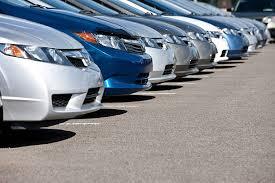
The decision to purchase a car is not just a financial one; it also carries environmental implications. In Pakistan, where car auctions provide a popular avenue for acquiring vehicles, it's essential to consider the environmental impact of this purchasing method. From emissions to resource consumption, here's a closer look at how buying cars at auction in Pakistan affects the environment:
Emissions and Air Quality
Vehicle Age and Emissions Standards: Many cars available at auctions in Pakistan are older models that may not meet current emissions standards. Older vehicles tend to produce higher levels of harmful pollutants such as carbon monoxide, nitrogen oxides, and particulate matter, contributing to air pollution and reduced air quality.
Increased Vehicle Miles Traveled: The availability of affordable vehicles at auctions may encourage more people to purchase cars, leading to an increase in the number of vehicles on the road. This surge in traffic can exacerbate congestion and emissions, further compromising air quality in urban areas.
Resource Consumption and Waste Generation
Manufacturing and Energy Use: Every car, regardless of its acquisition method, requires significant resources and energy during the manufacturing process. From mining raw materials to assembling components, car production consumes water, energy, and materials, contributing to environmental degradation and carbon emissions.
End-of-Life Disposal: Vehicles purchased at auction may have shorter remaining lifespans compared to new cars. As these vehicles reach the end of their usable life, they contribute to the growing problem of automotive waste. Proper disposal and recycling of end-of-life vehicles are essential to mitigate environmental impacts, but inadequate recycling infrastructure in Pakistan poses challenges.
Fuel Efficiency and Greenhouse Gas Emissions
Fuel Efficiency Considerations: Older vehicles commonly found at auctions may have lower fuel efficiency compared to newer models. Higher fuel consumption translates to increased greenhouse gas emissions, exacerbating climate change and environmental degradation.
Transition to Electric Vehicles: While auctions predominantly feature gasoline and diesel-powered vehicles, there is a growing global trend towards electric vehicles (EVs) for their lower emissions and reduced reliance on fossil fuels. Encouraging the adoption of EVs through incentives and infrastructure development could mitigate the environmental impact of car ownership in Pakistan.
Conclusion
While car auctions in Pakistan provide an accessible means of purchasing vehicles, it's crucial to recognize their environmental implications. From emissions and air quality concerns to resource consumption and waste generation, the environmental impact of buying cars at auction extends beyond individual transactions. To address these challenges, policymakers, manufacturers, and consumers must collaborate to promote sustainable transportation solutions, including the adoption of cleaner vehicles, investment in public transit, and the development of recycling infrastructure. By prioritizing environmental considerations in car purchasing decisions, we can work towards a more sustainable and greener future for Pakistan's transportation sector.
You Might Like Also

How to Get the Best Value for Money on New Cars

Benefits of Pre-Purchase Car Inspections in Karachi

The Role of Extended Warranties in Selling Your Car

The Future of MG Car Prices in Pakistan’s Market
















